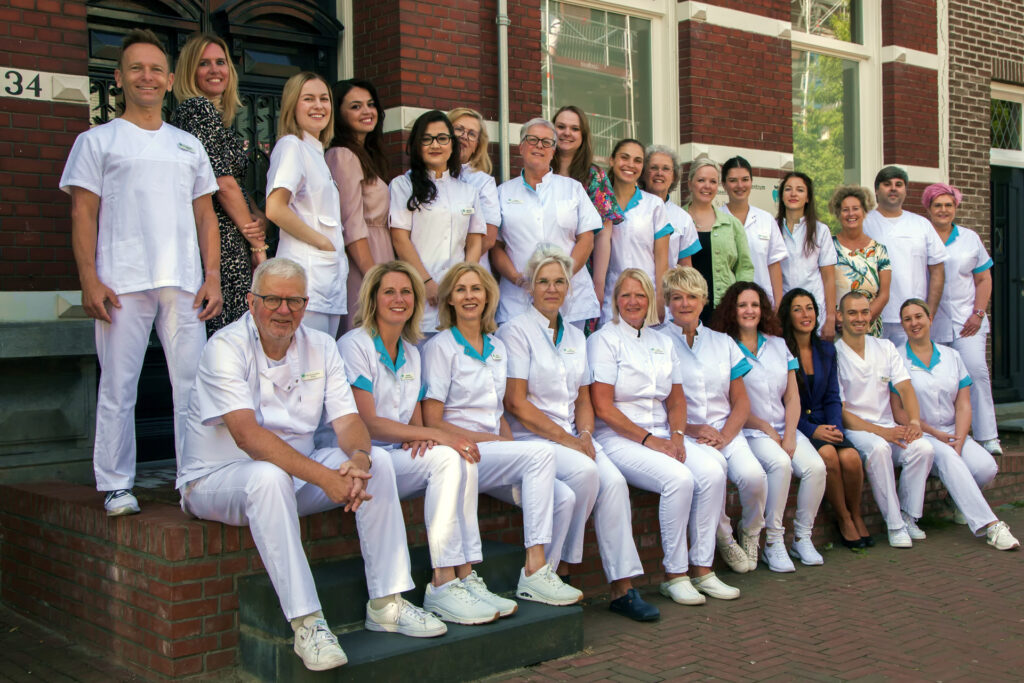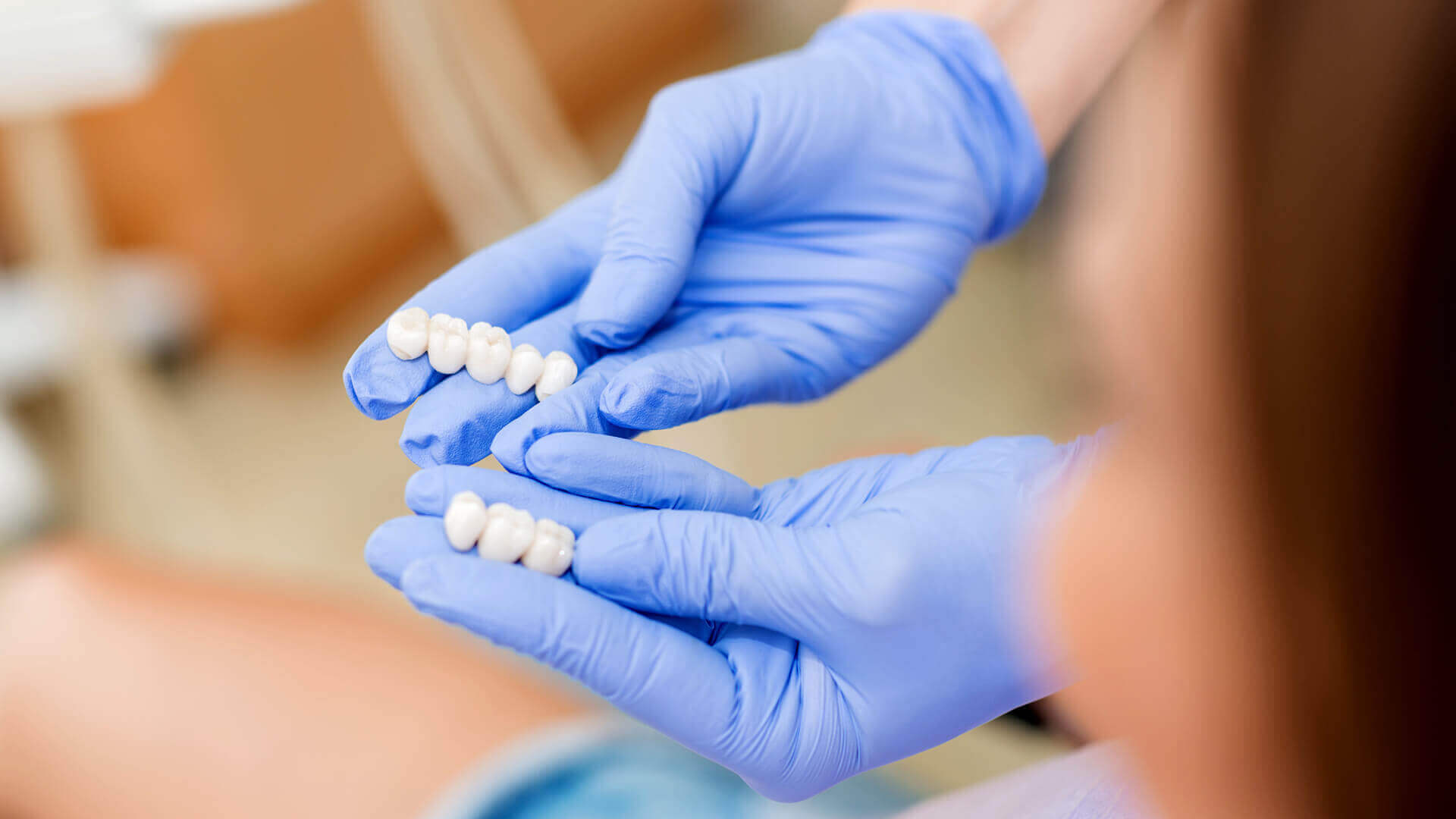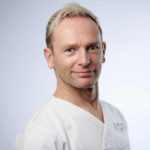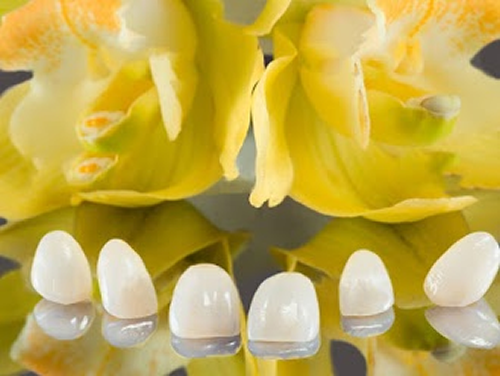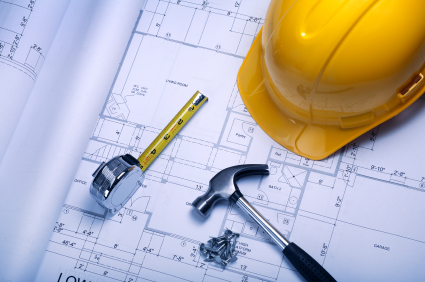Leestijd: 2 minuten
Het renoveren van een gebit.
Zowel de functie als de schoonheid van het gebit kan verloren gaan.
Wanneer mensen het over tandheelkunde hebben, legt men vaak de nadruk op het uiterlijk van het gebit. Soms realiseert men zich niet dat tandheelkunde onderdeel is van de gezondheidszorg.
Tandheelkunde is ook esthetiek, het terugbrengen van de functie van het gebit is echter het uitgangspunt. Verlies van een onderdeel van het gebit, zoals een tand, betekent dat dit moet worden hersteld. Dit is waar gebitsrenovatie over gaat: de kunde om terug te brengen wat verloren is gegaan.
Wat zijn tandheelkundige restauraties?
Bij een tandheelkundige restauratie wordt functieherstel van het gebit vaak gecombineerd met het verbeteren van het uiterlijk van het gebit.
De nieuwste technieken en materialen worden ingezet om een deel of het geheel van een tand of kies te vervangen.
De beschadigde of zieke tanden en kiezen worden niet alleen hersteld, maar waar mogelijk ook mooier gemaakt.
Wat voor soort tandheelkundige restauraties zijn er?
De diverse restauratie mogelijkheden hangen grotendeels af van de omvang van het probleem: hoeveel tandweefsel is verloren gegaan en hoeveel tandweefsel ziet er niet mooi uit. En boven alles: wat is de wens van de patiënt?
De methoden en technieken die we kunnen inzetten zijn zeer gevarieerd, een eenvoudige vulling, inlay, onlay, kroon, facing of zelfs een gebitsprothese ter vervanging van een ontbrekende tand of tanden.
Vullingen

Vullingen zijn de meest voorkomende restauraties voor tanden en kiezen, en waarschijnlijk ook de meest bekende. Wanneer een gaatje ontstaat in een tand of kies, dan kan het geïnfecteerde deel worden verwijderd om verdere verspreiding van tandbederf te voorkomen.
Het gat dat ontstaat door het verwijderen van geïnfecteerd weefsel moet meestal worden vervangen door een vulling. In het verleden was amalgaam een van de meest gebruikte materialen, dit werd gemaakt van een combinatie van metalen, waaronder kwik. Vanwege de veiligheid, om nog maar te zwijgen van de lelijke opvallende donkere vulling, wordt deze vulling nu nog maar zelden gebruikt.
Tegenwoordig worden tandkleurige vullingen gebruikt, composietvullingen genaamd. Composietvullingen zijn in de loop der jaren sterk verbeterd en gaan nu langer mee dan composietvullingen uit het verleden.
Composietvullingen hebben een sterke hechtingskracht en blijven daarom goed aan de tanden kleven. Hierdoor zijn ze een uitstekende vulling om te gebruiken voor het behoud van een gezonde tandstructuur.
Een ander tandkleurig restauratiemateriaal dat wordt gebruikt, hoewel niet zo vaak als composiet, zijn glasionomeervullingen. Deze bevatten ook fluoride, dat bij het aanbrengen van deze vulling aan de tanden wordt afgegeven. Ze worden gebruikt voor bepaalde soorten gaatjes en ze kunnen ook worden gebruikt als eerste vullingslaag, waarna ze als afwerking worden bedekt met een composietvulling.
Onlays and Inlays
Deze ‘inlegvullingen‘ worden speciaal door het laboratorium vervaardigd en zijn bedoeld voor tanden die sterk zijn aangetast door tandbederf. Inlays en onlays worden gebruikt wanneer het bederf zo groot is dat het niet meer kan worden vervangen door een composietvulling.
Inlays en onlays worden van verschillende materialen gemaakt, waaronder goud, resin en porselein. Het is een duurzaam alternatief voor het plaatsen van een vulling of kroon. Een vulling kan een kies behoorlijk verzwakken en bij een kroon moet best veel tandweefsel worden afgeslepen.
Nadat het rotte weefsel is verwijderd, wordt een foto van de tand gemaakt en naar het laboratorium gestuurd. Deze foto geldt als leidraad voor de onlay of inlay die moet worden gemaakt. Nadat het laboratorium de inlay of onlay heeft gemaakt en afgeleverd bij de tandartspraktijk, wordt deze op de tand van de patiënt aangebracht. Deze wordt permanent vastgelijmd om het gat als gevolg van het tandbederf definitief te bedekken.
Kronen
Deze restauraties, ook wel caps genoemd, zijn speciaal vervaardigde restauraties voor tanden die zodanig door tandbederf zijn aangetast dat bijna al het glazuur is vernietigd. In dit geval wordt een groot deel van het buitenste gedeelte van de betrokken tand verwijderd, waarna een plaat wordt genomen en naar een laboratorium wordt gestuurd.
De teruggeplaatste restauratie moet de hele tand bedekken, zodat hij zijn oorspronkelijke vorm en grootte terugkrijgt. Hij wordt op de tand of kies vastgecementeerd, net als bij onlays en inlays.
Bruggen en gebitsprothesen
Deze worden over het algemeen prothesen genoemd en worden gebruikt om ontbrekende tanden en kiezen te vervangen.
Bruggen zijn bedoeld om één tot drie tanden te vervangen, terwijl kunstgebitten worden gebruikt om een groter aantal ontbrekende tanden te vervangen.
Bruggen worden ook permanent vastgelijmd op steuntanden die zich naast de ontbrekende tand bevinden, terwijl kunstgebitten uitneembaar zijn. Bruggen kunnen van verschillende materialen worden gemaakt, zoals metaal, porselein of zelfs kunsthars.
Kunstgebitten zijn meestal gemaakt van kunsthars, porselein, metaal, of een combinatie van de genoemde materialen.
Er zijn verschillende soorten kunstgebitten en elk kunstgebit heeft een specifiek gebruik en doel. Uw tandarts kan u altijd advies geven over welk specifiek ontwerp en materiaal voor u het meest geschikt zal zijn.
De beleving staat centraal
Onze toegankelijkheid laten wij graag zien. Wij nodigen u uit om uw vragen aan ons te overleggen. Dat kan via onderstaande naw gegevens of het contactformulier.
Tandheelkundig Centrum Steenbergen
Grote Kerkstraat 34
4651 BB Steenbergen
0167 – 563 780
info @ tandheelkundigcentrumsteenbergen.nl
